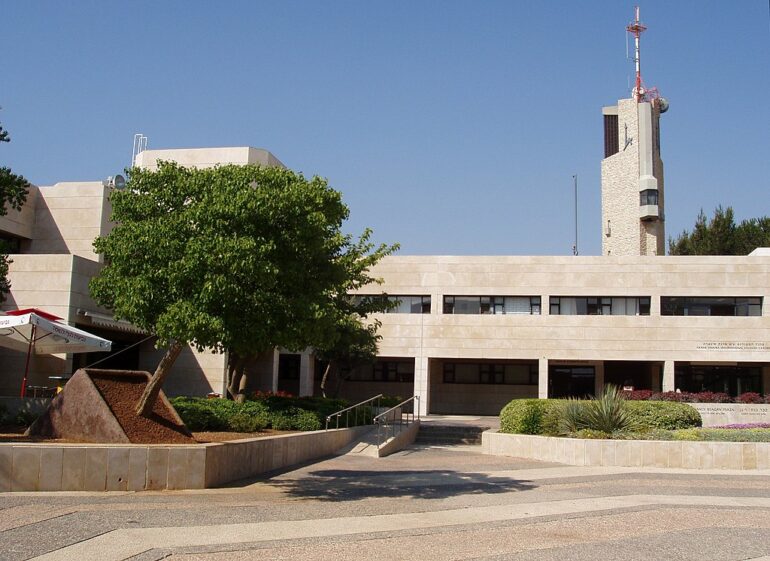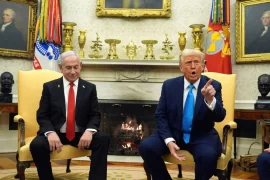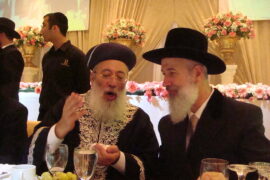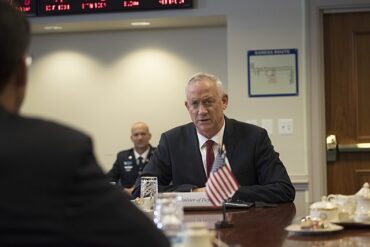Last week, the Israeli Academy of Sciences and Humanities held a symposium on the topic “Fighting for the Spirit: How to Create Change in the Study of Humanities in Israel.”
The title is a play on the Hebrew term “Mad’ei HaRuaḥ” (“Science of the Spirit”) – Israeli academia’s expression for the humanities.
The aforementioned academy itself interestingly leaves the emphasis on the humanities out of its official name in Hebrew, “HaAkademia HaLeumit HaYisraelit L’Mada’im” (“The Israeli National Academy for Sciences”).
This symposium, like the academy’s name, is just the latest episode in a decades old effort by Israeli academia to blur the lines between hard sciences, social sciences, and humanities – and to use humanities faculties in Israeli universities to influence Israeli society.
In light of their liberal Western worldview, the academy sponsored the symposium due to recent trends that threaten the future of their efforts to shape Israeli society.
First among these is a declining interest in the areas of study due to limited employment opportunities, in favor of hard sciences – especially computer science – and professional degrees like law and business. This has made it more difficult for humanities professors to shape the minds of the best and brightest Israeli students who will go on to shape the nation’s future.
Additionally, the advent of artificial intelligence has created a sense that the humanities are becoming obsolete in an age when computers can spit out compelling novels, scripts, and essays within seconds.
Finally, the current war has strengthened senses of nationalism and militarism within the young generation of active soldiers, officers, and reservists, undermining the ideological liberalism that is held up as the ultimate paradigm and value system for teachers of the humanities.
Therefore, in the face of these impending disasters for the struggle over Israel’s future, the academy has taken up arms to “fight for the spirit” of Israel.
Rav Yosef Kalner, a close student of Rav Zvi Yehuda HaKohen Kook who teaches at yeshivot and pre-military academies across the country, has been sounding the alarm against Israeli academia for years, writing essays and giving lectures on the topic to various audiences. There’s one point, however, on which Rav Kalner and the organizers of the symposium agree – the humanities have the power to shape the perceptions, cultural norms, values, and morals of a society, and to mold the next generation of national leadership in its image.
But while the academy takes for granted that this is the way of things in the liberal, enlightened societies of the West, Rav Kalner sees it as an imminent danger to the people of Israel living the life we are meant to live in our land.
In a recent Q&A session, Rav Kalner responded to one of his student’s reports on the symposium and what we can learn from this historic moment in the struggle over Israel’s national spirit.
Rav Kalner expressed surprise at the academics’ self-awareness and their ability to accurately understand their current situation. He further responded to their proposed solution: changing the language of academia to make it more palatable to the masses, while conveying the same general humanist message to undermine the strongest expressions of Jewish national identity.
Next, the rav addressed a subject that features prominently in much of his work on the topic – faculties for “Jewish Studies” or “Biblical Studies.”
While Rav Kalner is usually highly critical of these faculties, who seek to undermine our tradition and fill the minds of yeshiva and seminary graduates with Biblical Criticism and heretical approaches to understanding our Torah, here he points out a silver lining that the symposium also addressed, albeit as a serious problem to overcome from their perspective.
While students from more traditional Jewish backgrounds are suddenly filling the benches of these faculties, their peers from more westernized backgrounds have absolutely no interest in the field. Their illiteracy in the history and traditions of our people ultimately leave the future of the Jewish spirit in the hands of academics possessing a much deeper Jewish national consciousness. This is obviously to the great chagrin of Israeli academia’s current leaders, who fail to shape the public perception of Jewishness as successfully as they shape perception around economics, politics, and a wide range of social issues.
Rav Kalner also addressed the symposium’s proposal that mandatory programs take place at the elementary school level that indoctrinate children with liberal values in order to influence students before their worldviews are fully shaped at home by their parents. He noted that this was directly related to the previous topic, and that by breaking down the boundaries between what Israelis perceive as national-religious versus what they perceive as secular-humanist, the academy could make more progress in shaping young minds.
Such a change would weaken the more Jewishly connected students’ resistance to attacks on their worldviews, which academia has until now had only partial success in converting, and at the same time offer students less connected to their roots the ability to critically approach and study Jewish texts without the fear of being influenced by them.
Rav Kalner also insisted that ultimately, even if such an approach was successfully pursued, and penetrated elementary school education, it would be insufficient due to the nature of liberal Western ideology. Any system whose values are primarily individualistic and materialistic, and fail to address the deeper truths of the human spirit are ultimately self-defeating. If even the West is witnessing pushback against these values, in the forms of fascism and white nationalism, no amount of educational programming can succeed at overcoming and defeating Israel’s eternal national spirit.
Even if these westernized Israeli academics bring upon us further tribulations as we struggle to clarify who we truly are and what our role is in history and in shaping the world, the academy’s plans to distance us from our traditions and from our identity can never hope to halt the process of our internal liberation. They will only delay it.
As the nation wakes up from many of its preconceived notions as a result of this terrible war that we’ve been fighting for over a year, as the discussion around decolonizing Jewish identity to step out of the shadows of the nation’s founders and advance the people of Israel’s story to its next stage, the conversation around academia’s role in the fight for the spirit of Israel is more important than ever.





